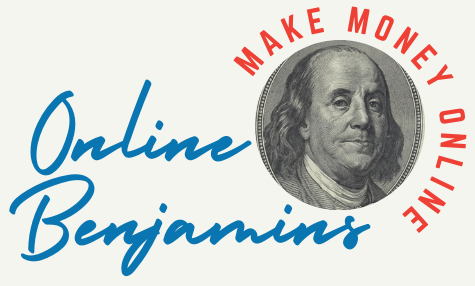I have spent a lot of time working with different digital business models, and I find that the comparison between online courses and ebooks is a topic that many creators explore. Both methods have proven success, but the models differ in several important ways.
QUICK LOOK: Factors to Consider with Ebooks vs Online Courses
Your individual expertise plays a significant role in determining which model suits you best. If you already have a respected name in a certain field, an ebook may be an excellent starting point to test your market and establish your credibility
Your time commitment is also crucial. Writing an ebook can often fit around a busy schedule and does not require you to invest weeks in video production or software learning. In contrast, if you have the available time and technical proficiency, producing a quality online course might lead to better long-term results and help you build a loyal following of learners.
- Price Potential and Revenue Streams: Online courses can be priced significantly higher than ebooks. The interactive elements and additional content justify a premium price. Ebooks, however, are usually offered at a more affordable cost but can work well in niche markets with a loyal customer base.
- Engagement and Learning Experience: When I compare the two, online courses generally offer more engagement with video lessons, quizzes, and interactive community features. Ebooks provide a self-paced format without these extra layers of interactivity, which suits readers who prefer to study at their own pace in a quiet environment.
- Production Time and Complexity: Ebooks are simpler to produce because writing and formatting are less resource-intensive. Online courses require thoughtful planning, quality video production, editing, and sometimes even ongoing technical support.
- Recurring Revenue Opportunities: Online courses often support subscription models or memberships, allowing users to pay for continuous updates and additional content over time. Ebooks, on the other hand, typically operate as one-time purchases.
- Investment and Risk Levels: The resource investment in creating an online course is higher, which might imply that you will see higher returns when everything is executed well. In contrast, ebooks represent a lower-risk investment due to their minimal production costs, making them a sensible way to test your ideas in the market.
This article takes a close look at online courses and ebooks, comparing their potential profits, production realities, and overall business impact. I hope my insights help you decide which business model might be the best fit for you.
Understanding the Business Models
The discussion around online courses versus ebooks often revolves around how each product is designed, sold, and maintained. Business models differ by the amount of interaction, pricing strategies, and the resources required to launch the product.
I take an all-in-one look at what each option has to offer. By breaking down these models, you can see the different ways to monetize your expertise and the kind of commitment required for each approach.
What Are Online Courses?
Online courses are structured programs usually delivered in a series of lessons. They use various media such as video lectures, quizzes, downloadable resources, and live discussions. I appreciate the interactive nature of online courses because they allow students to engage with the content and sometimes with the instructor directly.
This dynamic experience can create a sense of value that justifies a higher price point. The multifaceted delivery of content ensures that learners get a next-level cool educational experience that is both engaging and informative.
What Are Ebooks?
Ebooks are digital publications that focus on delivering information through text and images. They are usually sold as standalone products. Many creators choose ebooks because they are simpler and less time-consuming to produce.
Ebooks work well in niche markets where a specific audience seeks detailed insights on particular topics. Their simplicity allows you to get your message out quickly and establish authority in a focused subject area.
Profit Potential: Price and Revenue
I have observed that online courses typically have higher price potential compared to ebooks. The added value of interactive learning, structured content, and direct engagement increases what customers are willing to pay.
With online courses, you can see not only upfront payments but recurring revenue as well. Membership models or additional modules allow you to generate more revenue over time, and when you mix in periodic updates and exclusive content, the revenue potential continues to grow.

Lower Production Costs and Faster Launch
It is important to note that ebooks usually require less production time and lower costs than online courses. When you write an ebook, your primary focus is on developing content and polishing it with thorough editing.
There is no need for extensive video production or complicated editing software, which makes the process much simpler. This factor can be a significant advantage if you have limited time or resources, allowing you to quickly test the market and start earning.
Levels of Engagement and Interaction
Interaction plays a major role in customer satisfaction, and that is where online courses tend to shine. The interactive design of courses – including elements like video tutorials, quizzes, and discussion boards – offers a more immersive learning experience.
On the other hand, an ebook does not offer the same level of engagement. Customers generally use ebooks as a reference or guide and may not interact with the content beyond reading. As a result, if building a community or offering a hands-on learning environment is important to you, an online course might be the better choice.
Niche Markets: Where Ebooks Excel
Ebooks can be profitable when they serve a dedicated niche that is hungry for specialized information. If your subject targets a very specific audience that values concise, targeted content, an ebook can prove to be a valuable product.
The lower production costs also mean that even with lower price points, a successful ebook can deliver steady income. Often, ebook buyers appreciate the focused approach and the ease with which they can refer back to the content.
A Comparison of Key Features
- Price Potential and Revenue Streams
Online courses can be priced significantly higher than ebooks. The interactive elements and additional content justify a premium price. Ebooks, however, are usually offered at a more affordable cost but can work well in niche markets with a loyal customer base. Each model comes with its own set of advantages depending on your target revenue goals. - Engagement and Learning Experience
When I compare the two, online courses generally offer more engagement with video lessons, quizzes, and interactive community features. Ebooks provide a self-paced format without these extra layers of interactivity, which suits readers who prefer to study at their own pace in a quiet environment. The type of learning experience you want to offer should align with the expectations of your audience. - Production Time and Complexity
Ebooks are simpler to produce because writing and formatting are less resource-intensive. Online courses require thoughtful planning, quality video production, editing, and sometimes even ongoing technical support. This makes ebooks an attractive option for beginners and those who might be working with limited technical skills or budget. - Recurring Revenue Opportunities
Online courses often support subscription models or memberships, allowing users to pay for continuous updates and additional content over time. Ebooks, on the other hand, typically operate as one-time purchases. Although the revenue from ebooks is not as recurring in nature, smart marketing and periodic promotions can help build a steady income stream. - Investment and Risk Levels
The resource investment in creating an online course is higher, which might imply that you will see higher returns when everything is executed well. In contrast, ebooks represent a lower-risk investment due to their minimal production costs, making them a sensible way to test your ideas in the market.
Who Is Best Suited for Each Model?
The decision to choose one model over the other depends on your expertise, available time, and the technical skills at your disposal. I have noticed that newcomers to digital business often find ebooks to be more appealing because they require less upfront work. This option allows you to build an audience gradually and validate your content ideas without a massive production commitment.
For creators who already have ample technical know-how and a solid reputation in their field, online courses offer the opportunity to create immersive learning experiences. If you are willing to invest more time and effort, the long-term revenue potential of online courses can be very important. Your business approach should match not only your skills but also your strategic goals.
Pros and Cons of Online Courses
| Pros of Online Courses |
|---|
| Higher price potential per sale. |
| Opportunities for recurring revenue through subscriptions or memberships. |
| Interactive elements that step up the learning experience. |
| The ability to update course content periodically to keep it relevant and fresh. |
| Cons of Online Courses |
|---|
| Higher production time and cost. |
| Technical challenges such as video production and platform management. |
| A potentially steep learning curve for course creation tools and software. |
Pros and Cons of Ebooks
| Pros of Ebooks |
|---|
| Lower production time and cost. |
| Simpler to produce without a need for extensive technical skills. |
| Can quickly establish your expertise and build an initial audience. |
| Provides a form of passive income with minimal ongoing updates. |
| Cons of Ebooks |
|---|
| Typically lower price point per sale. |
| Less opportunity for recurring revenue. |
| Limited interaction and engagement compared to online courses. |
Assessing Your Expertise and Resources
Your individual expertise plays a significant role in determining which model suits you best. If you already have a respected name in a certain field, an ebook may be an excellent starting point to test your market and establish your credibility. I have found that if your audience is willing to invest in deeper learning, an online course can deliver higher levels of value and revenue.
Your time commitment is also crucial. Writing an ebook can often fit around a busy schedule and does not require you to invest weeks in video production or software learning. In contrast, if you have the available time and technical proficiency, producing a quality online course might lead to better long-term results and help you build a loyal following of learners.
Effect of Market Niche on Product Choice
The choice between online courses and ebooks can also depend on how well your product fits within a market niche. If your subject matter covers a broad range of information, an online course with detailed modules may appeal to a large audience seeking a next-stage educational experience.
However, if you serve a very specialized niche where a dedicated audience craves concise, targeted content, an ebook might prove to be more effective. Both models require consistent marketing and the creation of high-quality content.
When I evaluate customer needs, I notice that readers who prefer quick solutions might not enjoy a course that seems too long. Similarly, learners who desire interactive, step-by-step guidance might find a static ebook too basic. Understanding your audience is very important before making a final decision.
Key Considerations When Choosing Your Strategy
I have gathered several factors that can help you decide which business strategy fits your skills and goals best. Consider the following points:
- Revenue Goals: Do you aim to generate higher revenue per sale or are you looking to establish a recurring income stream?
- Production Capabilities: Assess whether you have the technical know-how or resources needed for video production and ongoing course management.
- Customer Engagement: How important is interactive, hands-on learning content in achieving high customer satisfaction?
- Market Niche: Does your target audience lean towards full-length, detailed courses or concise, focused readings?
Learning and Evolving Your Business Model with Wealthy Affiliate
Wealthy Affiliate offers a supportive platform if you are setting up a business around online courses or ebooks. I have used the tools provided by Wealthy Affiliate to step up my online business strategies. They are also the highest-rated online business platform on Trustpilot.

The platform offers guidance on website building, content marketing, and even improving your technical skills. Whether you decide on online courses or ebooks, Wealthy Affiliate provides training resources, live webinars, and expert advice to help you create and market your products.
They deliver step-by-step guidance on building a website, driving traffic, and monetizing your content. This platform is an excellent resource for both beginners and experienced marketers looking to expand their digital business.
The learning community at Wealthy Affiliate is filled with members who share experiences and valuable insights. This network can help you avoid common pitfalls and offer advice on best practices when developing your online course or ebook business.
In my experience, the support and continuous updates available through Wealthy Affiliate empower creators to make well-informed decisions regarding product development and marketing strategies. They also offer a 100% free, no-obligation starter membership, so you can check out the platform for yourself without having to part with any of your hard-earned money.
Additional Tips for Digital Product Success
Before making your decision between an online course and an ebook, it is a good idea to spend some time reflecting on several additional tips.
- First, consider formulating a business plan that accounts for both short-term gains and long-term sustainability. Break down your goals into manageable milestones and decide whether you want to start small with an ebook or jumpstart your endeavor with an online course.
- Another important aspect is audience feedback. Set up surveys or hold informal focus groups to get a sense of what your potential customers really want. Their input can be the difference between a product that resonates deeply with the market and one that misses the mark. The process of actively gathering and reviewing this feedback can help you adapt and evolve your content over time.
- Moreover, investing in quality marketing materials is very important. Whether you are using social media, email marketing, or content partnerships, make sure you layout a plan that brings attention to your product. Create engaging previews, share behind-the-scenes looks at your production process, and offer valuable snippets of content to draw in your audience.
- Lastly, remember that both models are not set in stone. As your skills grow and your audience becomes more defined, you may decide to mix things up by offering ebooks along with mini-course supplements, or vice versa.
The flexibility to adjust and diversify your offerings can keep your business relevant and adaptable in a fast-changing digital market. This approach not only broadens your revenue streams but also builds a stronger brand presence over time.
Final Verdict: Which Business Model Wins?
The comparison between online courses and ebooks is not about one being inherently better than the other. Both offer unique benefits depending on your goals and the resources you have. I appreciate that online courses provide higher revenue potential thanks to their interactive nature and recurring income opportunities.
However, ebooks remain a sound option for new creators because of lower production costs and ease of entry. If you have a well-defined audience, strong technical skills, and enough time to invest, online courses may lead to greater long-term success. They allow you to build a loyal community and continuously update your content to reflect new information.
On the other hand, if you are just starting out or prefer a simpler business model, an ebook is a concise and effective way to share your expertise. The decision ultimately comes down to your expertise, the needs of your audience, and your long-term business goals.
Consider your strengths, your resources, and how you want to engage with your customers before choosing between an online course and an ebook.
Next Steps for Aspiring Creators
If you are unsure where to begin, starting with an ebook can be a good way to build confidence and test the market. Once you have established yourself and received positive feedback, you might consider transitioning to online courses for further growth.
Personally, I switched from ebooks to online courses when I felt the audience was ready for a deeper, more immersive learning adventure.
Both business models can be adjusted and refined over time. Keep track of feedback and sales metrics. This data helps you decide what to produce next, whether that means updating your ebook or expanding your online course offerings.
This iterative process not only maintains the relevance and quality of your content but also ensures that you continue to meet customer expectations and market trends.
Final Reflections
Even though online courses tend to be more profitable because of their higher price points and the chance for recurring revenue, ebooks remain a strong contender, especially for newcomers or those working within niche markets. I encourage you to evaluate your circumstances carefully before getting into one model over the other.
Both approaches offer viable paths to sharing your expertise and generating income. With a well-thought-out strategy and the support of educational communities such as Wealthy Affiliate, you can succeed regardless of your initial choice. Your adventure in digital content creation is unique, and every step you take builds towards a more robust and successful online presence.
I am curious to learn about your experiences and preferences. Your adventure, combined with practical actions and the right support system, can lead to a rewarding venture in the digital content space. Your next move might be the one that defines your digital business, so take your time to plan carefully and execute with confidence.
Check Out Our Most Recent Articles:
- Leveraging AI For Effective Inventory Management

- Best AI Video Generators For TikTok And Youtube

- How To Build A Branded Dropshipping Business

- Best AI Tools For Creating Downloadable Images

- How To Create Viral Faceless Content For Tiktok

- Best AI Website Builders

Wishing You Much Success,

- onlinebenjamins.com
- thebeachangler.com
- thesinnerinthemirror.com
- Facebook: Online Benjamins
- Twitter: @onlinebenjamin1
- Instagram: dotcomdinero
- YouTube: Online Benjamins
Rex
P.S. Again, Wealthy Affiliate is COMPLETELY FREE to get started. No catch, no obligation, no bait and switch. I will personally be in touch with you upon joining to offer my support and guidance to help you get up and running online.
P.P.S. If you have any questions or are unsure of anything, I am here and I promise I will get back to you on all of your questions and comments. Just leave them below in the comment section. Follow me on Twitter: @onlinebenjamin1, Instagram: dotcomdinero, and Facebook: Online Benjamins
Hi,
Thanks for stopping by and congratulations for taking the first steps to building your own online business. I’ve been in business both offline and online since 1997. I would consider it an honor to help you build your business. Father of 3, life long outdoorsman with an education in Genetics and Economics. This site is about cutting through the BS and finding the real opportunities in the online world. I look forward to working with you.



